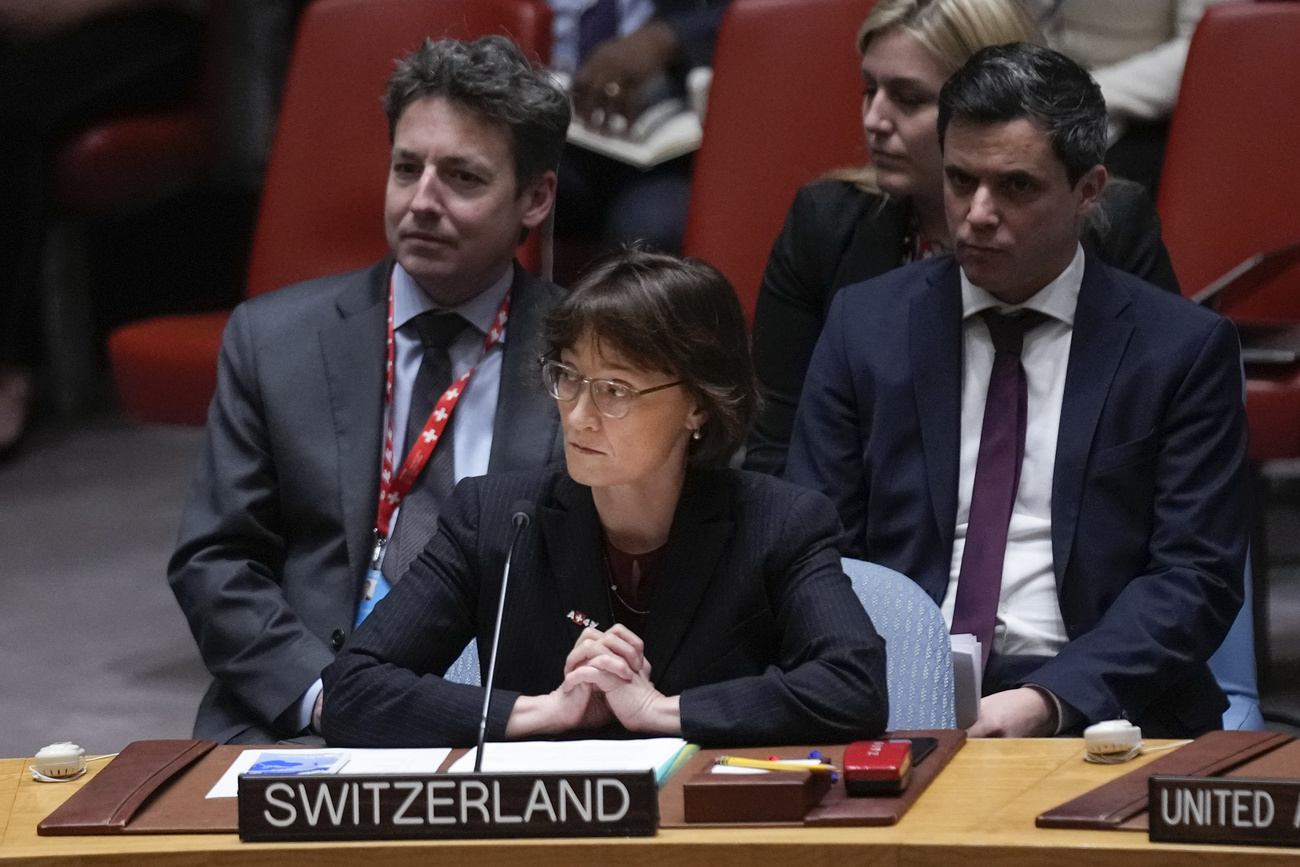
‘The expectation is for Switzerland to show its reliability’

Switzerland is set to address a growing number of issues linked to the Ukraine war during its month at the helm of the United Nations Security Council, says the Swiss ambassador to the United Nations, Pascale Baeriswyl. In this interview with SWI swissinfo.ch, the diplomat gives a peek at the packed meeting agenda of the world’s most important security organ.
SWI swissinfo.ch: How much room for manoeuvre does a country have when it’s holding to the Security Council presidency?
Pascale Baeriswyl: On the one hand, it is more of a ceremonial and administrative role. For one month, the country in question acts as the guardian of the Security Council. We aim to consult and involve everyone and support a fair decision-making process in the traditional Swiss fashion. In times of great tension, this role is important.
On the other hand, we hope in the long term to put an emphasis on the priorities of the Swiss government for the New Agenda for Peace.
SWI: What exactly does this entail?
P.B.: We’ve planned two high-level debates. On May 3 we discussed confidence-building in the field of peace promotion with Swiss Foreign Minister Ignazio Cassis. On May 23, Swiss President Alain Berset, the UN Secretary-General and the president of the International Committee of the Red Cross will be present to discuss the protection of civilians.
SWI: Do the other 14 members of the Security Council have any specific expectations of the Swiss presidency?
P.B.: I think there are high expectations that our leadership will be strong and that we will act in a trustworthy way and show solidarity – in other words, that we can showcase a reliable Switzerland.
SWI: What are the main themes of this month, and what difficult decisions can we expect?
P.B.: First we have to discuss whether to extend the mandate of the UN peace mission in Iraq and the sanctions on South Sudan. Then the Security Council is due to have the annual report approved by the General Assembly. Other than that, there are many other meetings that have been mandated. May is one of the busiest months in the Security Council.
We can also expect emergency meetings on countries for which meetings have not been mandated yet, such as Ukraine, Afghanistan, Myanmar and North Korea.
SWI: Could the Initiative on the Safe Transportation of Grain and Foodstuffs, also known as the Black Sea Grain Initiative, which created procedures to safely export grain from certain ports following Russia’s invasion of Ukraine, come up?
P.B.: It could, but it is not really a Security Council issue. At the moment, it is mainly in the hands of the UN Secretary-General and the parties to this agreement, which are Turkey, Ukraine and Russia.
SWI: Switzerland’s presidency of the Security Council is coming right on the heels of the Russian presidency [in April], which was controversial. Does this have an impact on Switzerland?
P.B.: Expectations are high that peace and calm will return to the Security Council. But we cannot avoid that in the Council the debates are sometimes polarised. Often we’re also speaking to our people at home. Some countries that previously held the presidency postponed several meetings that are now on the agenda for May. One of these issues is what to do regarding the war in Ukraine.
SWI: Will Switzerland use its presidency to propose specific diplomatic solutions to reach a peace agreement?
P.B.: Countries can request that a meeting be scheduled, for example on Ukraine. Of course we accept these requests. However, it remains to be seen whether these debates in the Security Council open any channels behind the scenes, improve the situation, or contribute to peace. For us, our role is more of an administrative one at the moment.
Translated from German by Billi Bierling

In compliance with the JTI standards
More: SWI swissinfo.ch certified by the Journalism Trust Initiative





























You can find an overview of ongoing debates with our journalists here . Please join us!
If you want to start a conversation about a topic raised in this article or want to report factual errors, email us at english@swissinfo.ch.